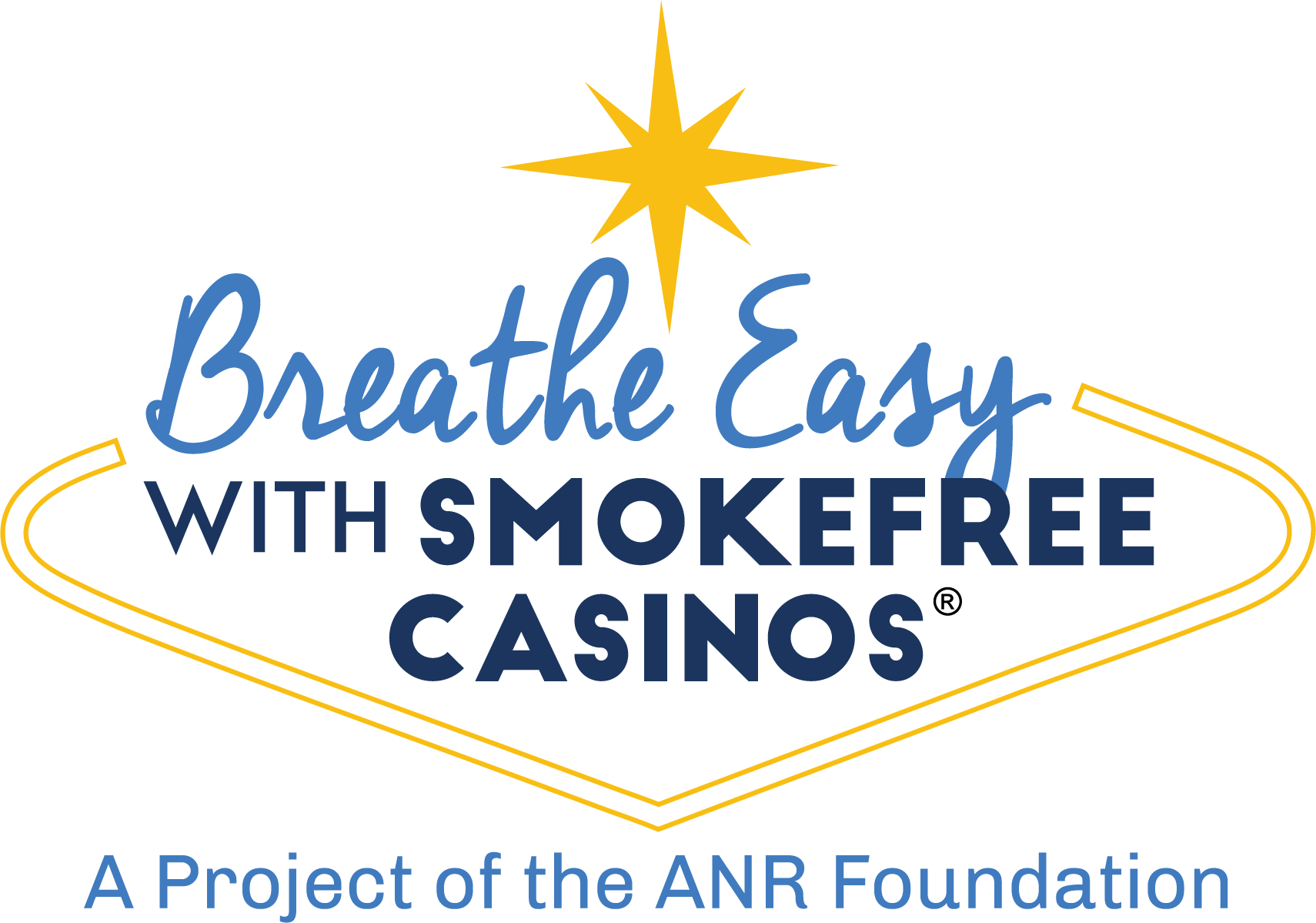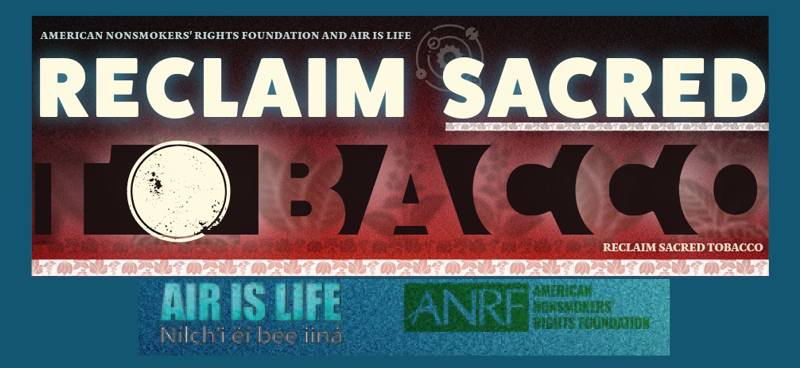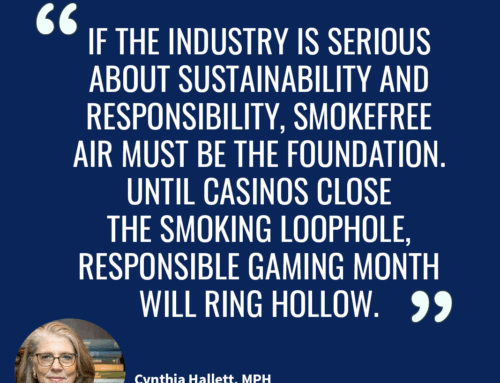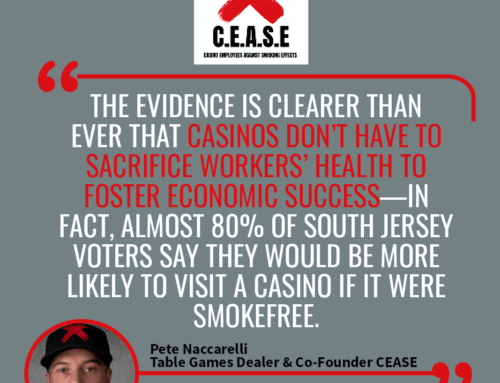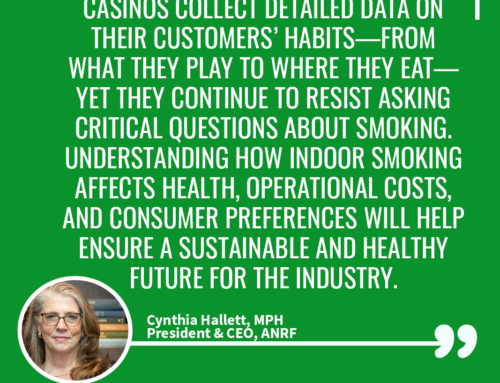Community-driven and Developed to Protect and Reclaim Cultural Traditions that Improve Public Health
The American Nonsmokers’ Rights Foundation and the Black Hills Center for American Indian Health developed the Reclaim Sacred Tobacco coalition (RST) in 2022, in response to increased need for smokefree policy development in Indian Country. The coalition has grown within two years from a handful of members to a registration list that includes over 400 partners nationally. Each coalition call hosts an average of 40 participants and topics range from growing traditional tobacco to restoring traditional names to historic places.
The overall goal of RST will remain to support policy and other cultural initiatives that lead to the development and passing of commercial tobacco policy. RST will continue to meet online via Zoom for one-hour on the fourth Friday of every other month. RST will be better suited to provide resources that are culturally responsive and funding to ensure community-driven policies are successful.
RST is proud to announce some exciting new developments leading into 2025. There will be a concerted effort to invite special guest speakers on RST calls to share stories that highlight smokefree policies or cultural reclamation projects. During the RST call in November 2024, Lavita Hill, a Tribal citizen from the Eastern Band of Cherokee Indians, shared how her Tribal community worked together to pass a smokefree policy at the Harrah’s Cherokee Casino Resort in Cherokee, North Carolina, and to restore the traditional name of a mountain—Kuwohi—at one of Cherokee’s sacred sites within what is now called Great Smoky Mountain National Park.
Lavita shared, “our ancestors referred to the mountain as Kuwohi, and that is well documented. It’s always been Kuwohi. We know that this is where our spiritual leaders went, our medicine men went to pray, and we know things were given to our people on the mountain, such as our seven clans. It all started there. It originated on the mountain [Kuwohi].” The policy initiatives led by the Eastern Band of Cherokee Indians and Lavita Hill reflect the overall direction that the RST coalition is committed to in 2025 and 2026.
RST programming will ultimately be community-driven and developed to protect and reclaim cultural traditions that improve public health. During the RST call on January 2025, Clinton Isham shared how a new resource from the ANR Foundation—Tribal Perspective and Casino Patron Survey Results on Smoking—could be shared with Tribal leadership in an effort to keep the 150+ Tribal casinos in the U.S. smokefree. Clinton Isham highlighted the significance of the 2014 Gambling with Our Health data and using data to tell stories,
Clinton shared, “The new ANR Foundation survey details nothing we already didn’t know regarding indoor smoking preferences from gaming patrons—both smokers and nonsmokers alike rather gamble in nonsmoking areas. An interesting highlight in the new ANR Foundation survey is that the number one factor customers consider before visiting a casino is not distance, payout ratio, or machine favorability. Customers make their decision to visit a casino based on whether it is smokefree and how clean it is.”
Clinton elaborated on the Gambling With Our Health results during the recent RST call and shared that the 2014 report suggested a casino would earn more revenue within six months of implementing a 100% smokefree policy due to higher-tiered player club members stating they would play machines longer if casinos were smokefree. This new evidence went against the norm within the gaming industry and it helped pave the way for other casinos to go smokefree following the leadership of the Ho-Chunk Nation of Wisconsin.
In 2015, there were less than five smokefree Tribal casinos in the United States. Ho-Chunk Gaming Madison, showcased how the Madison casino site changed when it went smokefree in August 2015. Ho-Chunk also shared that the casino administered a patron survey similar to Gambling With Our Health, and its results showed a majority of customers did not smoke and customers wanted the casino to be 100% smokefree. The casino experienced a small financial decrease of revenue for six months, but soon exceeded Ho-Chunk gaming’s flagship Wisconsin Dells site as top-revenue-earner after staying the course.
It is the intention of RST to empower these types of policy success stories within Tribal communities and highlight smokefree initiatives as a means of cultural revitalization. The new resource, Tribal Perspective and Casino Patron Survey Results on Smoking, serves as a starting point and tool for coalitions engage within their own communities. RST is centralizing surveys and other resources online and will share results from coalition members on social media and a newsletter that is in development. RST will simplify commercial tobacco prevention for Tribal communities and create one-stop-shop for any campaign needs.
Other RST coalition updates include the formation of a leadership team to help accomplish 2025 and 2026 policy and program goals. The RST Tribal Advisory Board (TAB) is comprised of four members who are either Tribal citizens or have close working relationships with Tribal communities. The TAB members meet once every two months and are tasked with reviewing and approving RST related products such as logos, resources, statements and press releases, and funding applications. RST is setting its sights to host its first in-person meeting in August 2025. Potential agenda items include hosting an unofficial congratulatory event to acknowledge the 10-year smokefree anniversary of Ho-Chunk Gaming Madison and a strategic planning meeting to develop a mission and vision statement for RST.
Read more in ANRF’s Report: Sovereign Tribes
